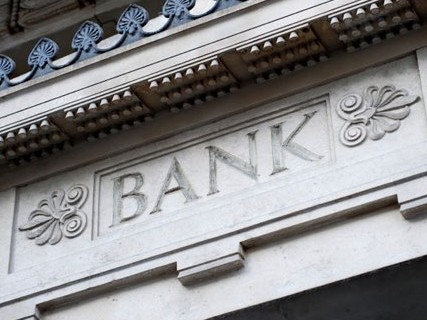CFPB rules U.S. banks on $30 Billion in excess fees

The $30 billion banks collect in overdraft fees each year may shrink as the U.S. Consumer Financial Protection Bureau imposes rules aimed at shielding customers from harm.
The agency, which issued a study on the fees yesterday, is also weighing regulations to improve consumer awareness of overdraft costs and restrict how banks can debit transactions and impose fees, according to a senior agency official.
“Despite recent regulatory and industry changes, overdrafts continue to impose heavy costs on consumers who have low account balances and no cushion for error,” Richard Cordray, the bureau’s director, said in an e-mailed statement about the report. “Overdraft fees should not be ‘gotchas’ when people use their debit cards.”
The potential regulations are a response to the new study, which followed up on an earlier one released last year, documenting practices the CFPB says harms consumers. The agency official, who spoke on condition of anonymity, briefed reporters on the possible regulations in advance of the document’s release.
Citing the report, Cordray said at the same briefing that “in lending terms,” a person who swiped a debit card, overdrew a checking account by $24, and covered it with a deposit three days later would pay a median overdraft fee of $34. That’s the equivalent of loan with an annual rate of 17,000 percent, Cordray said.
Flawed Comparison
Wayne Abernathy, executive vice president of the American Bankers Association, criticized the bureau’s annual percentage-rate analysis.
“Where is the logic in applying a yearly percentage rate to a fee intended for a service of no more than a few days?” Abernathy wrote in an e-mail.
Banks and credit unions reaped $31.9 billion in overdraft fees in 2013, according to Lake Bluff, Illinois-based Moebs Services, a research firm. Overdrafts occur when consumers spend or withdraw more money than is available in their checking accounts, whether through the use of debit cards, checks, ATM withdrawals or direct debits.
The Consumer Bankers Association, which represents the retail finance divisions of large banks, said in response to the study that overdraft services are both optional and popular among consumers.
‘Completely Optional’
“Consumers value and appreciate the ability to cover expenses when they need to, from an institution they trust, without resorting to entities outside the heavily regulated banking system,” Richard Hunt, the group’s president, said in a statement. “These debit card services are completely optional.”
The CFPB drew its conclusions from anonymized data it collected through banks it supervises, those with assets of more than $10 billion. Under authority it gained in the 2010 Dodd-Frank Act, the CFPB oversees a range of banks from Wall Street giants including JPMorgan Chase & Co. (JPM) to regional players such as Lafayette, Louisiana-based Iberiabank Corp. (IBKC)
In the new study, the CFPB found that the majority of overdraft fees are incurred on transactions of $24 or less, and that more than half of consumers pay back negative balances within three days.
Opting In
A 2010 rule imposed by the Federal Reserve, the CFPB’s predecessor as the main consumer-banking regulator, required banks to obtain an affirmative “opt-in” from customers who want overdraft coverage when they swipe their debit cards. Without it, transactions are supposed to be declined at the point of sale.
Susan Weinstock, director of the Consumer Banking Project at the Pew Charitable Trusts, which polls people about their banking habits, said the CFPB’s work validates its own conclusion that most bank customers would prefer to have transactions declined.
“Debit-card overdraft is a misunderstood, expensive, short-term loan for the consumer with low risk to the bank,” Weinstock said in an e-mail.
The CFPB found that nearly one in five customers who do opt in overdraw their accounts more than 10 times per year, and pay seven times more in fees than those who do not opt in.
‘Expensive Way’
“Opting in for overdraft coverage for debit card and ATM transactions is an expensive way to manage a checking account,” Cordray told reporters.
Large banks collect the lion’s share of the overdraft fees. Small banks, however, depend more heavily on the fees, which provide between 3 and 15 percent of their total revenue.
The report concludes that the impact on consumers is similar at “any institution,” a point smaller banks have vigorously disputed.
Camden Fine, president of the Independent Community Bankers of America, wrote in an e-mail that this conclusion contradicts a June 2013 study in which the agency repeatedly cited “variations” in how banks treat customers.
“There is absolutely no grounds to support such a sweeping generalization,” Fine wrote.
Moira Vahey, a CFPB spokeswoman, said that banks with similar policies would produce similar outcomes. “We know banks have a wide variety of policies, and so we do not claim that our findings are representative of banks with different policies,” she said.
Many smaller banks have protections in place such as limits on the number of fees a customer can incur, or cancellation of fees for a very small overdraft. They have also repeatedly opposed efforts by the CFPB and other regulators to collect data on their overdraft policies.
The first area of possible regulation includes changing the process by which customers opt in to overdraft services. Consumer groups and Pew say that consumers are often confused about whether they in fact opted-in.
Transaction Order
A second area would address the order in which transactions are debited from a consumer’s account. A court case against Wells Fargo & Co. (WFC) found that the bank manipulated the order of transactions to maximize overdraft fees.
“I want to take pains to note that nothing in this report implies that banks and credit unions should be precluded from offering overdraft coverage,” Cordray said. “But we need to determine whether current overdraft practices are causing the kind of consumer harm that the federal consumer protection laws are designed to prevent.”
Source: bloomberg





























